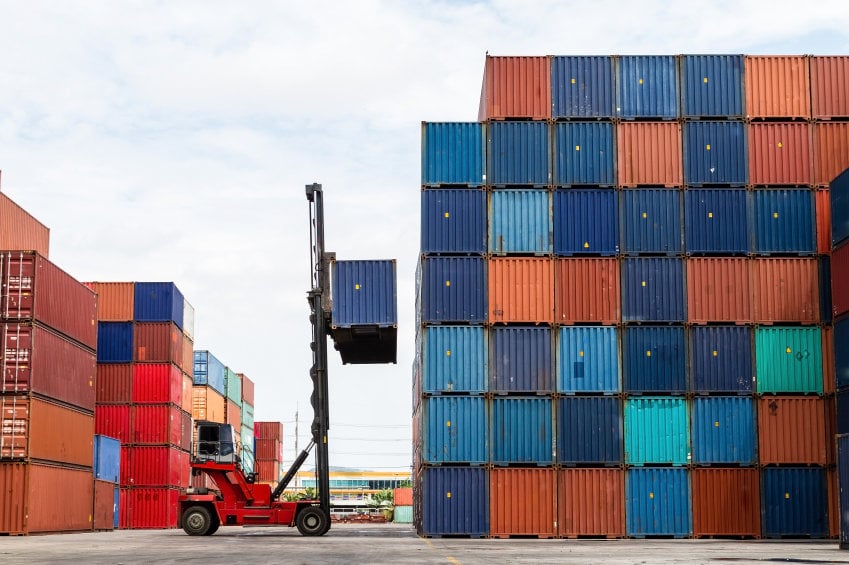Misdeclared Overweight containers can have a serious impact on the shipping industry, causing problems far beyond just being too heavy. Approximately 20% of containers in transportation are misdeclared and/or overweight, partially due to poor quality control from the original shipper. Many shippers over-pack the containers in an effort to maximize their bottom line. However, misdeclared overweight containers have the potential to not only be the catalyst in costing more when something goes wrong, it is simply dangerous and can have very serious and real consequences.What Problems do Overweight Containers Cause?
Due to the increasing growth of international trade, shipping containers are stacked on top of one another, and the number of containers high is continually growing. When loaded, overweight containers can cause injury to dock workers and can also damage containers stored underneath during transportation. Containers that are misdeclared can cause equipment or chassis damage when it reaches the port. Also, an overweight container that travels by boat can alter the balance of the ship, impair the stability, and possibly even worse, all due to incorrect stowage, when the container is believed to be a different weight.
What is Considered Overweight in the United States?
For transportation across an American highway, the maximum legal load for cargo in a 20” container and a 40” container is 44,000 lbs. (19,958 kg.) and 44,500 lbs. (20,185 kg.), respectively. All of the cargo weight must be distributed evenly throughout the container, in order to maintain safety regulations and avoid axle weight violations. When combined with the truck and chassis, the vehicles gross weight can’t exceed 80,000 lbs. (36,287 kg.).
When shipping by rail, the regulations are slightly higher than highway transport – 52,900 lbs. for 20” container, 67,200 lbs. for a 40” container. Certain items, such as steel reels or marble slabs, can place too much weight on the floor of the rail car, which can risk degradation of the floor and possible derailment if cargo falls through.
How Can The Shipping Line Take Action?
If an overweight or misdeclared container is found, it should not be transported by any means until the shipper has be notified. The shipping line can force the shipper to transport the cargo at their own expense, if the freight is an overweight inbound container. By doing so, the shipping line clears themselves from any fines or penalties that the cargo acquires. Also, shipping companies can opt to split the cargo between containers, and associate all costs of reloading onto the original shipper. A trucker should never feel pressured to knowingly transport an overweight container.
Shipping companies should enact a specific clause in the contract of transportation that informs shippers that they will be responsible for charges resulting from overweight containers. It’s important that shipping companies receive the most accurate weight of the container before loading, so as to arrange proper stowage of the cargo.
At each interchange point, the cargo should be weighed so each new transporter verifies the load they are responsible for. By forcing shippers to be accountable for misdeclared or overweight containers, shipping companies can avoid hefty fines and maintain the safest transportation possible.




